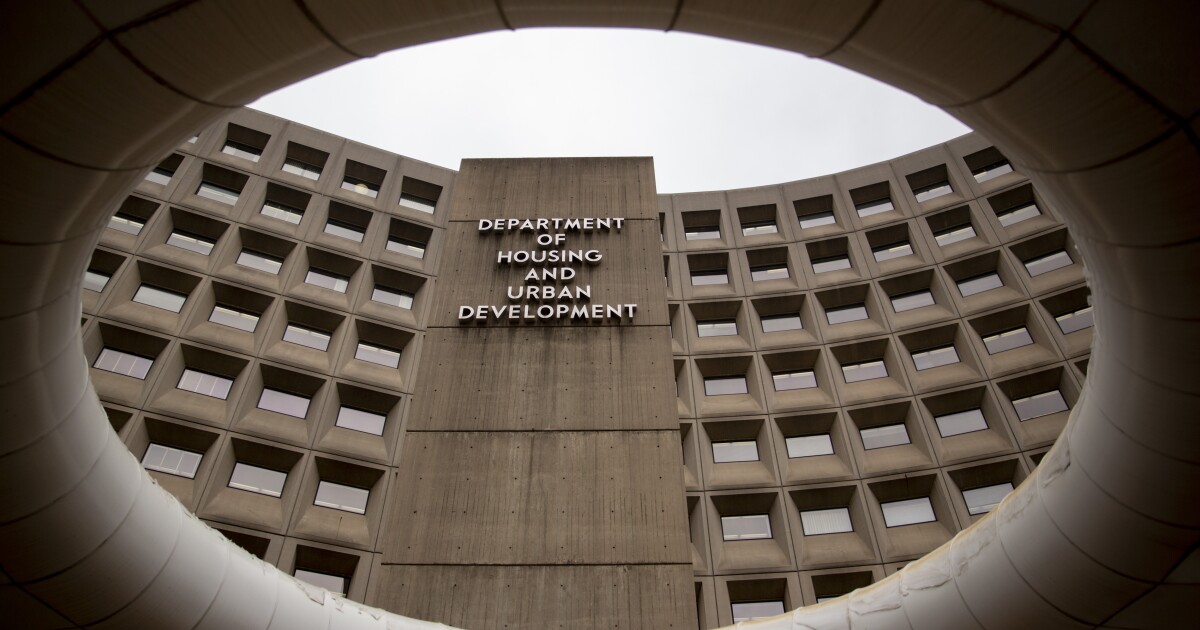
The Department of Housing and Urban Development has announced plans to change
The move aims to stop certain disability benefits from counting as income in ways that hurt applicants' ability to receive assistance from the HUD-Department of Veteran Affairs Supportive Housing program. Addressing the concern may help some disabled veterans without homes obtain them.
The policy change also might interest apartment lenders looking to sell loans that disclose environmental, social and governance benefits into
While counting disability benefits as income can help veterans demonstrate they have sufficient resources to make payments on a loan for an owned home, it's been an obstacle for those seeking to use HUD-VASH to obtain rental housing because that program has a maximum income limit.
Removing that hurdle means that for those with service-related disabilities, "the days of a veteran having to choose between getting the VA benefit they deserve and the housing support they need are finally over," VA Secretary Denis McDonough said in a press release.
"This policy change will ensure that veterans who are receiving the disability benefits they earned through service and sacrifice can access the housing assistance and supportive services they need," said Adrianne Todman, acting secretary at HUD.
HUD-VASH combines housing vouchers with support services. VA medical center staff help connect veterans with the program and public housing agencies that issue the vouchers under the auspices of HUD. To support changes to the program, HUD allocated $20 million to agencies in 43 states to help improve it with the White House's support.
"Today's actions reflect President Biden and
In addition to not counting disability benefits related to service as income, public housing agencies administering HUD-VASH will have to raise the income limited to 80% of area median income from 50%. This was possible but only at public housing agencies' discretion previously. Now it will be mandatory.
Public housing agencies also will have the ability to allocate non-competitive project-based HUD-VASH contracts to projects or units in VA facilities that serve qualifying families and make reasonable accommodations for as much as 140% of fair market rent. They additionally will be able to set a separate minimum rent policy that can be as low as zero.
HUD is consulting with the Treasury Department on whether the alternative income definition in the program has implications for participants in it seeking apartments in buildings that get subsidized by low-income housing tax credits.
Other impediments to housing benefits for disabled veterans that federal agencies have had to rectify in the past include home-loan fees improperly charged due to clerical errors regarding the borrowers' disability status.



